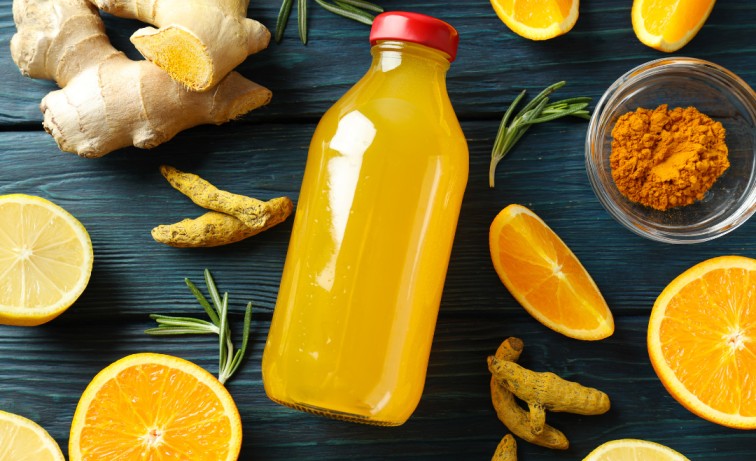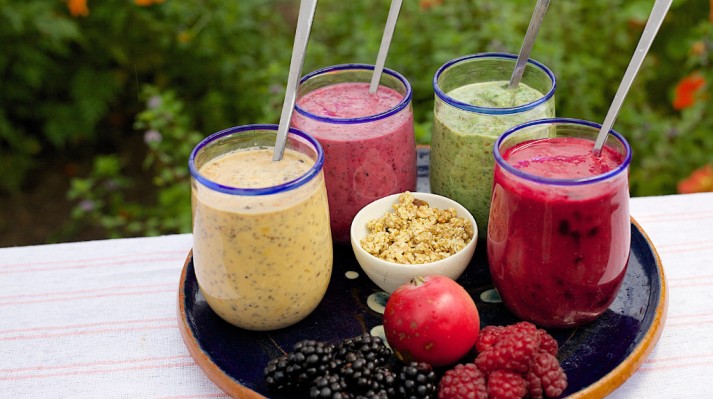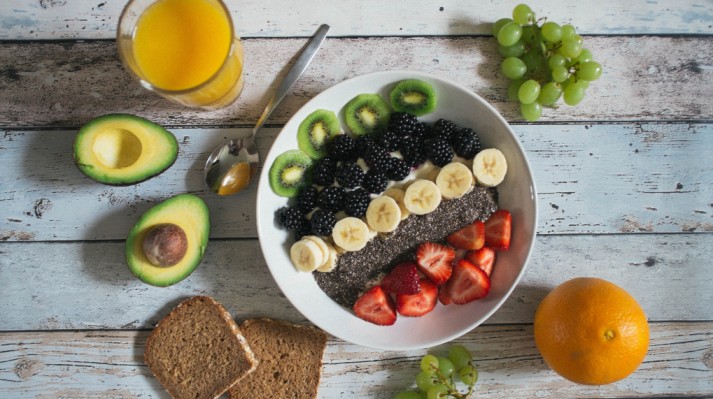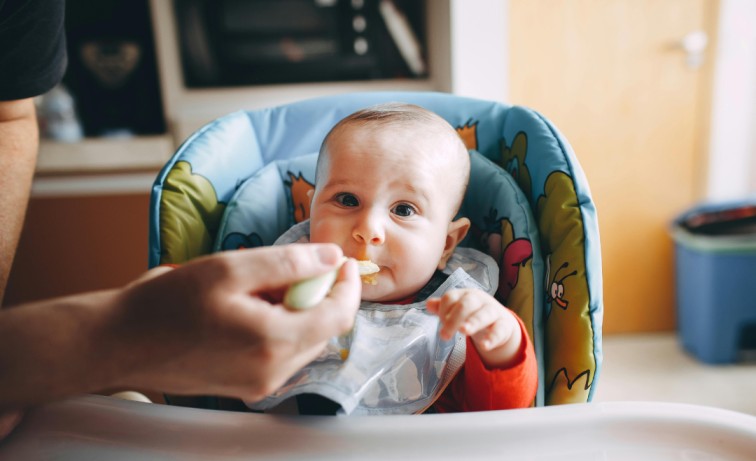Do you know how common fatty liver disease is? Research shows that it affects one in every ten people. A fatty liver is an accumulation of extra fat which turns harmful to your liver. It is also known as hepatic steatosis. And fatty liver is of two types: alcoholic liver disease (ALD) and non-alcoholic fatty liver disease (NAFLD). Apart from medications and treatments, a proper Fatty Liver Diet can help people better manage this condition. The right choice of food intake can reverse fatty liver.
So, in today’s post, we will discuss in detail how you can improve it by following the right diet plan from a dietitian for Fatty Liver.
Understanding Fatty Liver Disease and Diet’s Role
The main goal in treating any type of liver fat buildup is to quickly reach a healthy weight through diet and physical exercise. The focus should be on diet management to reduce the harm to the liver. Let us first understand the disease better and the role of diet.
What is Fatty Liver Disease?
As discussed earlier, fatty liver disease is a medical condition in which fat starts to build up in your liver. People suffering from this disease deal with a condition called insulin resistance which means your body makes insulin but fails to use it properly. So, glucose starts building up in the blood which the liver turns into fat.
The major causes behind fatty liver disease are obesity, metabolic syndrome, having a high-fat diet, diabetes mellitus, and high alcohol consumption. If you do not treat and manage the condition, it can damage the liver, leading to serious complications.
How Does Diet Impacts Liver Health?
The diet you follow has a direct impact on your liver health. When you eat foods high in saturated fat, your liver has to work harder to do its job. Over time, fats start accumulating leading to inflammation. This in turn causes scarring of the liver, a life-threatening disease – cirrhosis. So, to prevent this simply avoid excessive intake of saturated fat foods.
Having proper nutrition with a balanced diet and healthy fat can reduce fat accumulation and inflammation. If you are suffering from fatty liver, the right diet plan can improve liver function. Like, having a protein diet will be very helpful. Proteins can repair tissue, and they can restrict damage to the liver cells by preventing fat buildup.
Calorie restriction with a low-carb diet rich in vegetables is highly recommended for fatty liver. Certain fats can also help the body to use insulin properly. In general, a more plant-based diet improves insulin function and supports weight loss. This approach enhances liver health and helps perform better.
Foods to Include for Fatty Liver
The diet plan for fatty liver disease includes fresh fruits and vegetables, high-fiber plants, and whole grains. Apart from these, some specific foods help to improve liver health. Here is the list of food to include for fatty liver;
Coffee
Having a cup of coffee daily protects the liver against NAFLD. Even for people with healthy liver, having regular coffee lowers their risk of developing fatty liver. And, it reduces the risk of liver damage for those who are diagnosed with NAFLD.
Broccoli and Legumes
Having a variety of whole vegetables is very helpful in managing fatty liver disease. Broccoli helps to break down fats and prevent build-up. Also, a legume diet containing lentils, soybeans, chickpeas, and peas is known for improving gut health.
Fish
Intake of fish can reduce inflammation and fat levels. You can go for salmon, tuna, sardines, and trout, all of these are rich in omega-3 fatty acids. They can reduce liver fat and boost protective HDL cholesterol.
Nuts
Having meals rich in nuts will reduce liver inflammation. It will also work for insulin resistance and reduce oxidative stress. Studies have shown that people with high-fibre diets having walnuts resulted in improved liver function.
Green Tea
Green tea contains antioxidants, including catechins, that may benefit liver health. Research suggests these antioxidants will well improve symptoms of fatty liver disease.
Whole Grains
Whole grains, such as oatmeal, provide fibre and are linked to a reduced risk of NAFLD-related diseases. When you go for a high in fibre-rich foods such as oats, it can effectively support those with NAFLD, lowering triglyceride levels.
Turmeric
Curcumin is the active agent found in turmeric that reduces markers of liver damage in people suffering from non-alcoholic fatty liver disease.
Unsaturated Fat
Switching saturated fat sources, such as butter, sausages, fatty meats, and cured meats with unsaturated fats such as avocados, nut butter, and fatty fish can benefit those with NAFLD. This change may improve liver health and functions.
Foods to Avoid with Fatty Liver
So, if you are struggling to manage your fatty liver disease, there are certain foods that you need to completely avoid. If, in case, you cannot avoid them totally, eat them sparingly. Here is the list of foods to avoid as they will lead to excessive weight gain and increase blood sugar levels leading your liver towards damage;
- Alcohol: It is one of the major causes of fatty liver disease, so you may have to cut it down completely to avoid further damage.
- Added Sugar: Avoid sugary foods as they will increase blood sugar and fat build-up in your liver.
- White bread, pasta, and rice: All these are highly processed and can increase your blood sugar.
- Red Meat: It is rich in saturated fat and also has a higher sodium level which is not at all recommended for fatty liver disease patients.
- Fried foods: These are full of healthy fat and high calories.
- Added salt: Intake of excessive salt can raise the risk of NAFLD or worsen the condition.
Tips for Building a Liver-Friendly Diet
Fatty liver disease people need to maintain a healthy diet with certain changes.. Here are some quick tips to follow;
- Focus on whole, plant-based foods like fruits, vegetables, and whole grains.
- You can try the Mediterranean Diet and see its impact on your liver health.
- Incorporate healthy fats from avocados and fatty fish.
- Limit saturated fats found in processed meats and fried foods.
- Stay hydrated with plenty of water and healthy smoothies to support liver function.
- Avoid alcohol or consume it in moderation to prevent liver damage.
- Cut back on sodium: it’s recommended to limit sodium intake to no more than 2,300 milligrams per day.
- Minimise processed carbs and refined sugars to prevent liver fat buildup.
- Add fibre-rich foods to improve digestion and liver health.
Manage fatty liver with Qua Nutrition Dieticians
Diet management with calorie restriction is very important for people with fatty liver disease. Make sure to go for a diet plan that is rich in whole vegetables and fruits and unsaturated fats. It is better to go for a plant-based diet alongside practising physical activity and a healthy lifestyle. You can manage your fatty liver disease effectively using this formula.
However, it is not easy to make meal plans or keep a check on nutrients in the diet. So, it is better to get in touch with a dietitian and nutritionist to customize your diet plan.
At QUA Nutrition, we guide fatty liver disease patients to maintain a diet with the necessary nutrients. We have a team of liver health nutritionists who craft diet charts for people with NAFLD and ALD. Our certified nutritionists will give you the best advice and curate the diet chart with meal plans. Contact us now to schedule an appointment for your diet consultation.









